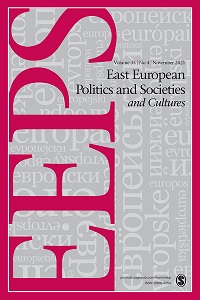Identity Politics or Economics? Explaining Voter Support for Hungary’s Illiberal FIDESZ
Identity Politics or Economics? Explaining Voter Support for Hungary’s Illiberal FIDESZ
Author(s): Bermond ScogginsSubject(s): National Economy, Political history, Economic policy, Government/Political systems, Electoral systems, Political behavior, Behaviorism, Economic development, Present Times (2010 - today), Socio-Economic Research, Politics and Identity
Published by: SAGE Publications Ltd
Keywords: illiberalism; FIDESZ; backsliding; voter behaviour; economic voting;
Summary/Abstract: This article tests cultural and economic explanations of why the longest surviving illiberal government in Central Europe, Hungary’s FIDESZ, has maintained popular support throughout two elections despite dismantling institutional checks and balances. Much of the literature on illiberalism in Central Europe attributes the appeal and successes of these governments to the brand of identity politics and rhetorical vilification of “others” practiced by their leaders. Yet the role of economic growth, a strong determinant of voter behaviour, has received little theoretical attention in accounting for illiberal party support. Using five rounds of European Social Survey data from 2010 to 2018, I show that economic satisfaction rather than a host of cultural factors, notably anti-migrant and anti-European Union attitudes, better predicts support for FIDESZ and satisfaction with government. I examine the implications of these results for understanding and conceptualising voter behaviour under backsliding. Voters may not understand what backsliding is and therefore are unable to penalise it or they may take information about backsliding into account and judge backsliding to be the price of prosperity. These findings and the discussion of voter behaviour raise important questions about the role of economic growth in sustaining illiberalism in Central Europe and other third wave democracies.
Journal: East European Politics and Societies
- Issue Year: 36/2022
- Issue No: 01
- Page Range: 3-28
- Page Count: 26
- Language: English
- Content File-PDF

